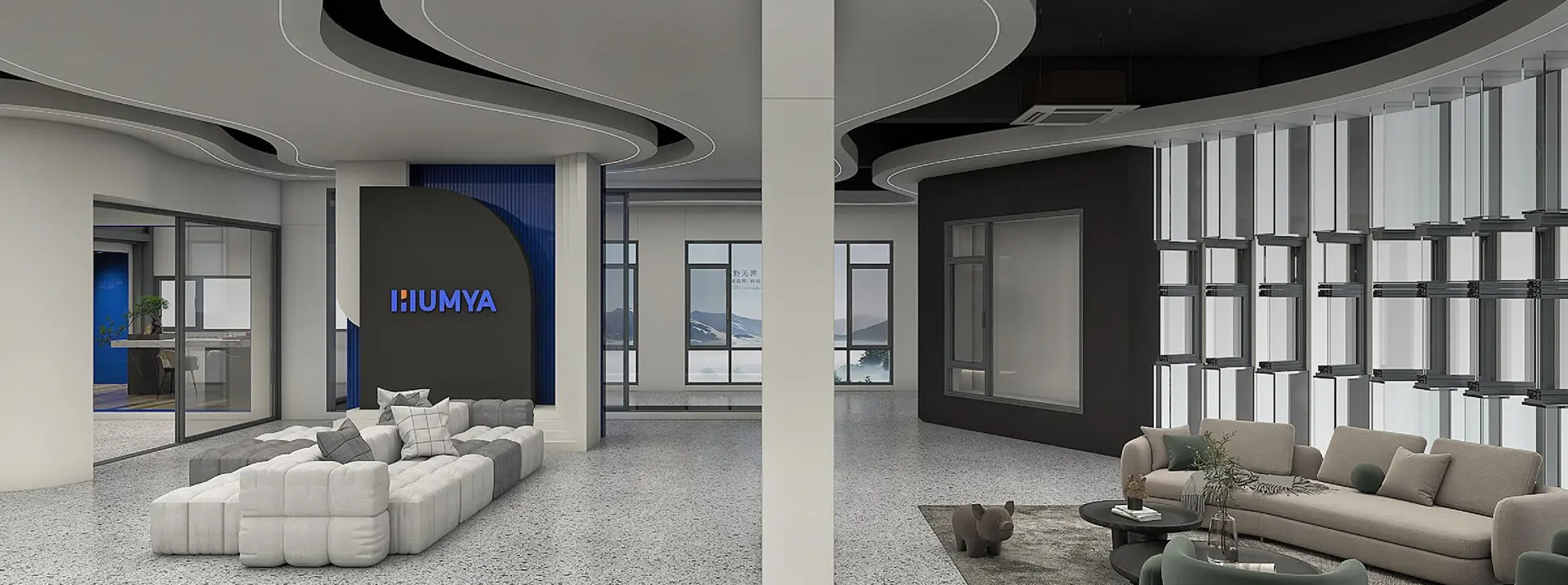
How to Choose the Perfect Casement Doors for Your Home
Choosing the perfect casement doors for your home can significantly enhance both its aesthetic appeal and functionality. Casement doors, known for their unique design and ability to provide ample ventilation, are a popular choice among homeowners looking to create a seamless connection between indoor and outdoor spaces.
In this blog, we will explore the essential factors to consider when selecting casement doors, including materials, styles, energy efficiency, and hardware options.
Whether you're aiming for a modern look or a more traditional feel, understanding the nuances of casement doors will ensure that your choice not only complements your home’s architecture but also meets your practical needs.
Join us as we delve into the best options available, helping you make an informed decision that truly reflects your personal style and enhances your home's overall charm.
Understanding Casement Doors: Features and Advantages
Casement doors are a popular choice for homeowners looking to enhance both aesthetic appeal and functionality in their living spaces. One of the defining features of casement doors is their ability to swing outward, which not only maximizes the amount of natural light but also provides excellent ventilation. This design allows for a seamless transition between indoor and outdoor areas, making them ideal for patios, balconies, or garden spaces. Additionally, the full-glass panel often found in casement doors provides unobstructed views of the surroundings, elevating the overall atmosphere of your home.
In terms of advantages, casement doors offer superior energy efficiency due to their tight seal when closed. This prevents drafts and temperature fluctuations, contributing to lower energy bills and a more comfortable living environment. Furthermore, their durability is noteworthy, as they are typically made of strong materials like wood, fiberglass, or vinyl, ensuring longevity and minimal maintenance. With a variety of styles and finishes available, casement doors can complement any architectural style while adding a modern touch to your home's exterior.
How to Choose the Perfect Casement Doors for Your Home - Understanding Casement Doors: Features and Advantages
| Feature | Description | Advantages |
|---|---|---|
| Material Options | Casement doors are available in wood, vinyl, aluminum, and fiberglass. | Diverse materials offer customization in terms of aesthetics and weather resistance. |
| Energy Efficiency | Many casement doors are designed with energy-efficient components. | Better insulation helps reduce energy bills and maintains indoor temperatures. |
| Ventilation | Casement doors open outward, allowing for superior airflow. | Enhanced ventilation can lead to improved indoor air quality. |
| Security Features | Many casement doors come with multi-point locking systems. | Increased security against unauthorized entry. |
| Aesthetic Appeal | Available in various designs and finishes to match your home. | Enhances the overall look and value of your property. |
Energy Efficiency: How Casement Doors Reduce Your Utility Bills
Casement doors are not only a stylish addition to any home but also play a significant role in enhancing energy efficiency. According to the U.S. Department of Energy, windows and doors account for approximately 25%-30% of residential heating and cooling energy use. By selecting high-quality casement doors, homeowners can significantly reduce their utility bills. These doors, which open outward on hinges, create a tight seal against drafts, minimizing air leakage and maintaining interior temperatures more effectively.
When choosing casement doors, look for models with a high Energy Star rating. These doors often feature double or triple glazing that can drastically lower heat transfer. For instance, homes with Energy Star-certified windows can save an estimated $126 to $465 a year on energy bills, depending on the climate and the type of heating and cooling systems used.
Tip: Make sure to evaluate the door frame material as well; fiberglass and vinyl frames typically demonstrate better insulation properties compared to aluminum frames.
Additionally, consider investing in Low-E (low emissivity) glass, which reflects heat back into the room in winter and keeps it out during summer. This technology can further enhance the energy efficiency of your casement doors and contribute to long-term savings on your utility expenses.
Tip: Regular maintenance, such as resealing and checking for wear, can prolong the lifespan of your casement doors and ensure they perform optimally year-round.
Enhanced Security: The Benefits of Casement Door Design
Casement doors are increasingly popular among homeowners seeking enhanced security and design elegance. According to a 2021 report by the Home Security Foundation, homes with casement doors experience a 20% reduction in unauthorized entries compared to those with traditional sliding doors. This is primarily due to the casement door’s unique hinge mechanism, which makes them difficult to force open. Moreover, the multi-point locking systems commonly found in modern casement doors provide added peace of mind, ensuring that the door locks securely at multiple points along the frame.
When selecting casement doors for security, consider materials and construction. Fiberglass and steel doors are noted for their durability and strength, creating a formidable barrier against potential intruders. Additionally, integrating smart lock technology further enhances security by allowing homeowners to monitor access remotely.
**Tips:** Always check that the doors have high-quality weatherstripping to prevent air leaks, which can compromise energy efficiency. Additionally, investing in impact-resistant glass can significantly increase your home’s resilience against break-ins while also providing extra insulation against sound and temperature fluctuations.
How to Choose the Perfect Casement Doors for Your Home
This chart illustrates the benefits of enhanced security features provided by different casement door designs.
Aesthetic Appeal: Why Casement Doors Enhance Home Value
Casement doors offer a unique blend of functionality and aesthetics that can significantly enhance the value of your home. Their design allows for maximum natural light, creating a welcoming atmosphere that draws the eye and uplifts the overall ambiance of your living spaces. The sleek frames and large glass panels not only provide unobstructed views but also encourage outdoor integration, which is a highly sought-after feature in modern home design. By choosing casement doors, homeowners can elevate the visual appeal, making properties more attractive to potential buyers.
Moreover, the versatility of casement doors allows them to complement various architectural styles, from traditional to contemporary. With options in materials such as wood, aluminum, or vinyl, these doors can be customized to suit the aesthetic of any home. This adaptability not only enhances the home's exterior charm but also allows for increased energy efficiency when properly fitted. By investing in stylish, high-quality casement doors, homeowners not only improve their daily living experience but also position their property as a more competitive listing in the real estate market, ultimately leading to increased home value.
Choosing the Right Material for Your Casement Doors: A Comparison Guide
When selecting casement doors for your home, choosing the right material is crucial not only for aesthetics but also for performance and longevity. According to a recent report by the American Institute of Architects, over 50% of homeowners prioritize energy efficiency in their door selection. Materials like fiberglass and vinyl offer exceptional insulation properties, with fiberglass having an R-value that can reach as high as 7.5, significantly reducing heating and cooling costs.
Wood remains a popular choice due to its classic appeal, but it requires regular maintenance to prevent warping and rot. A study from the National Association of Home Builders indicates that while wood doors can offer a unique charm, they incur about 30% more maintenance costs over their lifespan compared to vinyl or fiberglass. Additionally, aluminum, though often chosen for its durability, can be less energy-efficient unless it has thermal breaks in its design. Therefore, homeowners must weigh their preferences against long-term performance metrics to find the ideal casement door material that suits their needs.




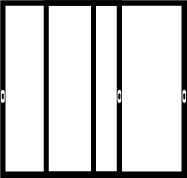 Sliding Door
Sliding Door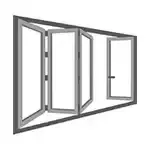 Folding Window
Folding Window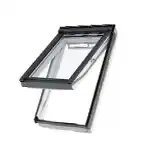 Skylight
Skylight Casement Window
Casement Window Sliding Window
Sliding Window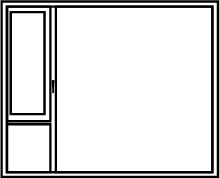 System Window
System Window Tilt and Turn Window
Tilt and Turn Window Sun Room
Sun Room